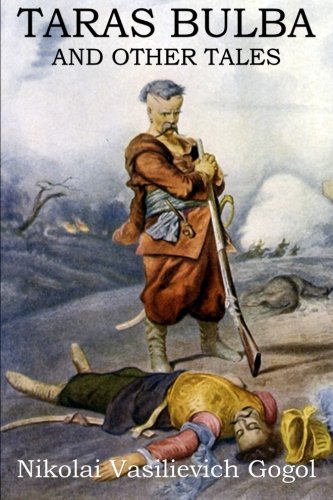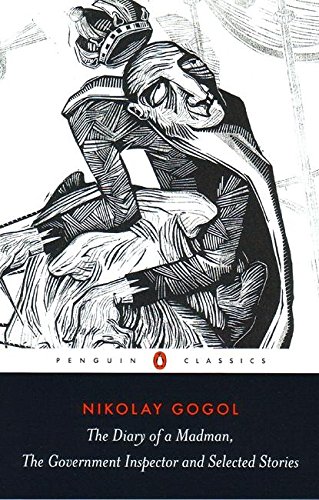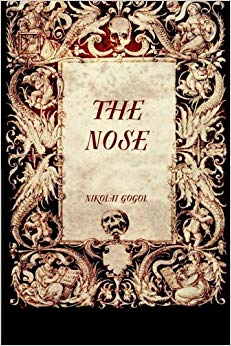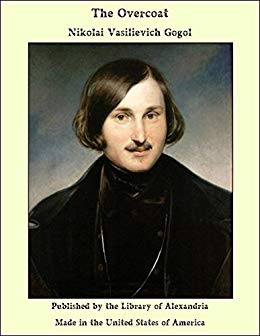Nikolai Vasilievich Gogol was a Russian dramatist of Ukrainian origin. The period of Russian imitation of Western literature ended with his works. He found inspiration in native materials and combined realistic detail with grotesque and otherworldly elements.
Background
Nikolai Gogol was born on March 20, 1809, in a little Ukrainian town of Sorochyntsi, Russian Empire (nowadays Velyki Sorochyntsi, Poltava province, Ukraine); the son of Vasily Gogol-Yanovsky. Gogol’s great-grandfather was a priest, and both his grandfather and father were educated in the Kyiv Spiritual Academy but did not follow the priestly line.
Gogol was, as a child, dreamy and withdrawn and was deeply affected by the death of a younger brother.
Education
When Gogol was 12, he went away to a school of higher art in Nezhin (now Nizhyn Gogol State University). He was a mediocre student but well behaved. He left school in June 1828 and apparently intended to make a career for himself in the Russian civil service. But despite financial difficulties, he delayed entry into the civil service and attempted to make a name for himself in literature.
Career
Gogol published the poem "Italy" on March 23, 1829, in the journal Son of the Fatherland; it was a clumsy effort, however, and received no critical attention. In 1829 he published at his own expense a more ambitious narrative poem, Hans Küchelgarten, which recounted the attempts of a romantic hero to escape from an idyllic but stifling environment. The poem was badly received by the critics, and Gogol attempted to retrieve and destroy all the extant copies.
Because of the failure of his first literary efforts Gogol turned to a career in the civil service and worked in several government offices. He then became a teacher in a girls' boarding school in 1831, a vocation that bored him and at which he was not very good.
He persisted in his writing, and his work began to gain some attention. He attracted the interest of Vassily Zhukovsky, an important contemporary Russian poet, and in May 1831 was introduced to Aleksandr Pushkin, Russia's greatest poet. With the writing and publication of Evenings on a Farm near Dikanka in 1831-1832, Gogol had arrived at a position of importance in literary matters. The stories in this collection are a mixture of realistic detail from Ukrainian folklife and bizarre and supernatural detail.
Shorter Works Arabesques (1835) consists of essays, art criticism, fragments of novels, and three short fictional masterworks: "The Portrait," "Nevsky Prospect," and "The Diary of a Madman." "The Portrait," which Gogol wrote in 1833-1834, is concerned with the relationship of art and religion. Specifically, it is about the selling of one's artistic soul to the evil spirit for money. Gogol was to become increasingly concerned with the moral implications of his craft. In this respect "The Portrait" anticipates the crisis about the relationship between art and religion that he was to experience in the last decade of his life.
"Nevsky Prospect" was completed in October 1834 and is based on the contrast of two loves pursued by two young men and the contrast between an ideal and a common view of love. Both love stories end in banality, and Nevsky Prospect, the street on which the adventures begin, is the marketplace of the world's vanity.
"The Diary of a Madman" was written in 1833-1834 and is a faintly sketched work about a minor civil official who is frustrated over love and becomes possessed by delusions of grandeur. Using the visions of a madman, Gogol shows the senselessness of striving and the vanity of the world.
Despite considerable success in his writing by 1834, Gogol was still not fixed in his mind about a career and harbored notions about being a professor and a scholar. In the fall of 1834 he was appointed lecturer in history at St. Petersburg University. He obtained this position by grace of the influence of important friends, and he was supremely unqualified to hold the post, both by way of temperament and background. This career, which lasted from the fall of 1834 to December 1835, was a dismal failure.
Mirgorod (1835) is a collection of four stories. The first tale, "Old World Landowners," is a description of the vegetable existence of two old people who live in an idyll of comfort, peace, and love. Tragedy and death, however, intrude on their existence. The second tale of this cycle is the pseudohistorical narrative "Taras Bulba," an unconvincing love story set against the background of the Ukrainian-Polish wars of the 16th and 17th centuries. The third tale of the cycle is "Viy," a supernatural tale about a student who kills a witch who turns out to be a young and beautiful woman. The last tale is "The Story of How Ivan Ivanovich and Ivan Nikiforovich Quarrelled," a story about an absurd argument between two honorable citizens of the town of Mirgorod.
In 1836 Gogol published "The Nose," a grotesque tale about a nose that disattaches itself from a certain major's face and insists on leading an independent existence to the major's dismay. The tale is a narrative of grotesque and bizarre incidents against a background often painted with minute and objective realism.
Gogol wrote his dramatic masterpiece The Inspector General between October and December 1835, and it seems probable that Gogol received the idea for the play from Pushkin. The play is about an impostor who is mistaken for a true but incognito inspector general and who is showered with favors and servility so as to mask the corruption and dishonesty of the civil servants. The play was at first rejected by the censor, but upon appeal to the czar himself it was permitted to be staged. The success of the play was immediate and overwhelming.
In considering Gogol's theater, one should mention too the comedy The Marriage, which was published in 1842 after 9 years of work.
Gogol loved to travel and was convinced that travel was beneficial to his health. During the last 16 years of his life he spent more time abroad than he did in Russia. He was particularly attracted to Rome, which he loved with an abiding passion. In the summer of 1836 he stopped at Vienna for his health and there experienced an important creative outpouring. He worked on Dead Souls, revised "Taras Bulba," and wrote "The Overcoat." He also experienced a religious vision which had shattering importance for him and influenced his subsequent view of art and his religious duty.
Gogol began to work on Dead Souls in the fall of 1835. He spent about 6 years writing it and did most of the writing abroad. He experienced difficulties with the censors, but the book was finally published on May 21, 1842. The work is of stunning originality and tells of Chichikov, a con man who travels about Russia buying serfs who have died but who are still carried on the tax rolls and then using the dead serfs as collateral for loans. On another level Chichikov's journey is a descent into the comic hell of Russian reality. General and typical failings of humanity are embodied in the types that Chichikov meets on his journey. Chichikov himself is the personification of banality and lack of character. The picture that Gogol paints of provincial Russia is one of oppressive banality, stupidity, and corruption.
"The Overcoat," published in 1842, is without doubt the masterpiece of Gogol's short pieces of fiction. It has had an enormous influence on the subsequent development of Russian fiction. The plot is about an insignificant copying clerk who saves up for an overcoat which is stolen from him on the first day of possession. Shortly after the theft the clerk falls ill and dies.
With the publication of "The Overcoat" and Dead Souls, Gogol's great contribution to Russian letters came to an end. The bold intention to continue Dead Souls was never realized, for Gogol burned most of the second part, and what he left is markedly inferior to the first part. Gogol became progressively convinced that he had the duty to use his art for the betterment of humanity. His moralizing tendencies are seen in the volume he published on December 31, 1846, Selected Passages from Correspondence with Friends, a work that was badly received by critics.
During the course of the 1840s Gogol became more and more convinced that he must purify his own soul, and he came increasingly under the influence of the clergy. He made a pilgrimage to Jerusalem in the spring of 1848. During the last 9 months of his life, his health deteriorated and he suffered from severe depression. The priest Matthew Konstantinovsky, a strong and intolerant person, gained considerable influence over Gogol's mind and persuaded him to fast more severely than was good for Gogol's weakened constitution. Gogol died on February 21, 1852.
Religion
To cope with his feelings of insecurity and confusion, Gogol turned to religion at the end of his life. After making a pilgrimage to Jerusalem in 1848, Gogol developed a very intense relationship with a fanatical spiritual elder, Matvey Konstantinovsky. As a result of this new relationship, Gogol fell under the belief that many of his imaginative works had lead him toward the path of a sinful life.
Politics
Gogol was an adherent of the Slavophile movement and believed in a divinely inspired mission for both the House of Romanov and the Russian Orthodox Church. He defended autocracy, serfdom, and the Orthodox Church.
Views
Quotations:
"The longer and more carefully we look at a funny story, the sadder it becomes."
"I am fated to journey hand in hand with my strange heroes and to survey the surging immensity of life, to survey it through the laughter that all can see and through the tears unseen and unknown by anyone."
"I am who I am and that's who I am."
"However stupid a fool's words may be, they are sometimes enough to confound an intelligent man."
"We have the marvelous gift of making everything insignificant."
"Always think of what is useful and not what is beautiful. Beauty will come of its own accord."
"Perfect nonsense goes on in the world. Sometimes there is no plausibility at all."
"There are occasions when a woman, no matter how weak and impotent in character she may be in comparison with a man, will yet suddenly become not only harder than any man, but even harder than anything and everything in the world."
"...nothing could be more pleasant than to live in solitude, enjoy the spectacle of nature, and occasionally read some book..."
"But wise is the man who disdains no character, but with searching glance explores him to the root and cause of all."
"You can't imagine how stupid the whole world has grown nowadays. The things these scribblers write!"
"They don’t listen to me, they don’t hear me, they don’t see me."
"What is stronger in us — passion or habit? Or are all the violent impulses, all the whirl of our desires and turbulent passions, only the consequence of our ardent age, and is it only through youth that they seem deep and shattering?"
"A word aptly uttered or written cannot be cut away by an axe."
"But youth has a future. The closer he came to graduation, the more his heart beat. He said to himself: “This is still not life, this is only the preparation for life."
"You can't imagine how stupid the whole world has grown nowadays."
Personality
Gogol inherited from his parents a heightened sensitivity, a love for the aesthetic, literary talent, humor, artistic capabilities, an easily disturbed character with strange prejudices and fears, and an inclination towards religious mysticism. From a rather early period, he would fall into periodic bouts of depression, which were always followed by periods of manic excitement. He would often react hysterically and invent fantastically ridiculous lies. He inclined to pseudo-reminiscence, showing off, philosophizing, bathos, and hyperbole in his expression of emotional distress, and he generally showed indications of a personality given to all forms of affectation. But while he developed these obviously psychopathological traits from his early years, Gogol was prone to intense moral self-criticism, even self-condemnation, and had an unusually sensitive religious conscience.
Gogol had superlative abilities in the dramatic arts, especially in comedy. Furthermore, he was a talented storyteller in the heroic style, and all that was comical or grotesque he could describe very vividly, like a sculpture.
Gogol had always been haunted by the fear of death, or more specifically, of falling into a lethargic sleep and being buried alive. For the last ten years of his life, he never slept lying down and only took naps, cuddled in an armchair. In a letter to a friend he requested that his body be committed to the ground only after it had shown the obvious signs of decay.






















